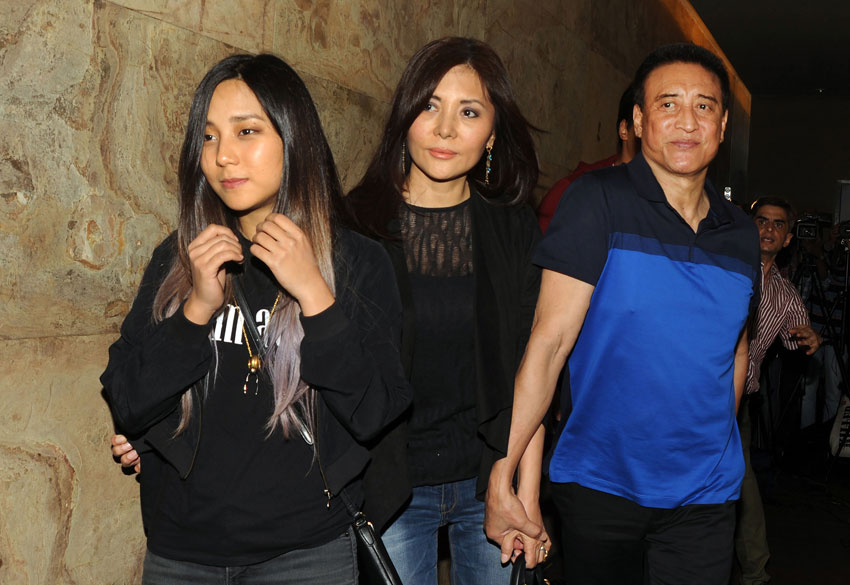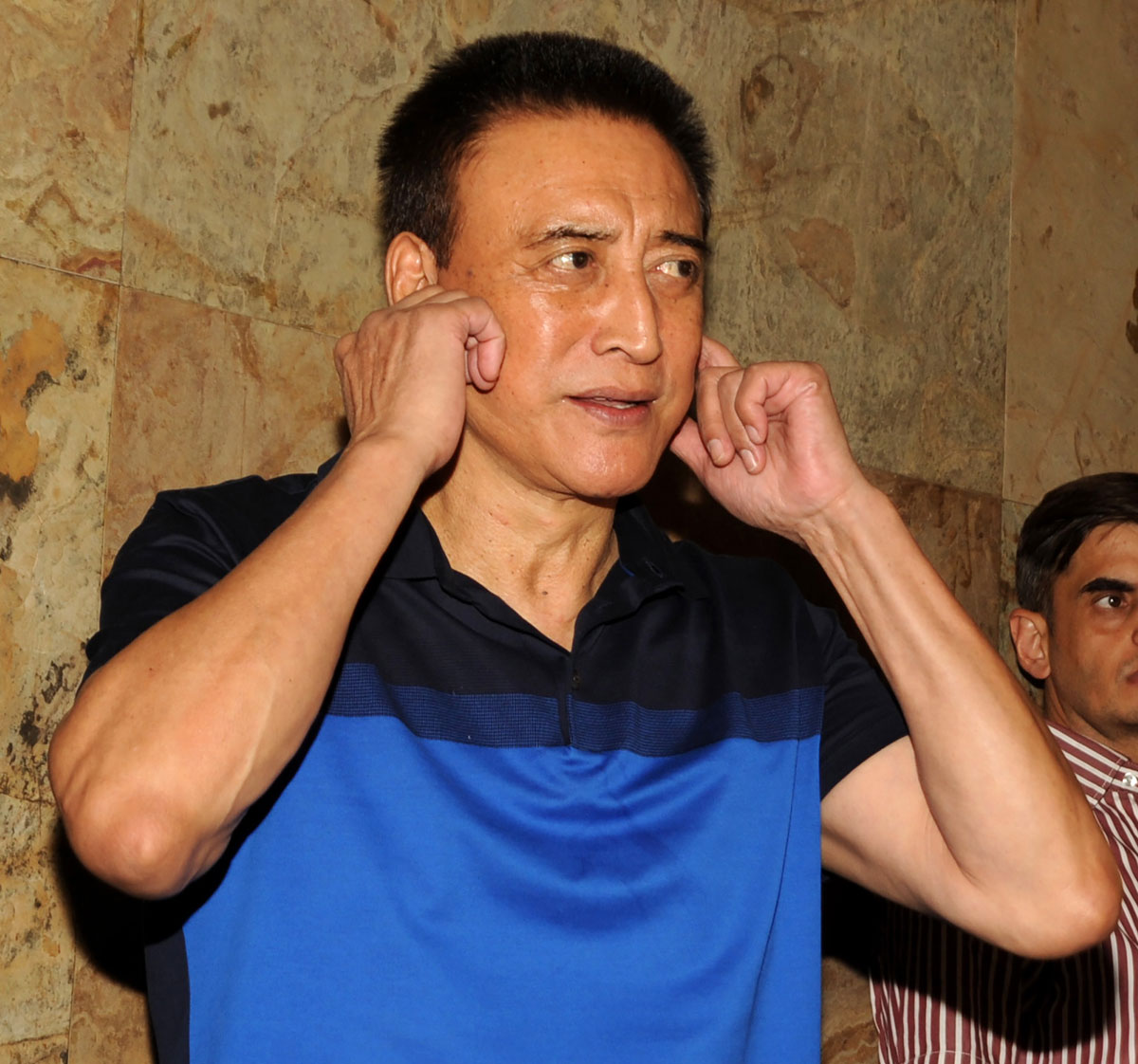I’m Like an Alien in the Film Industry: Danny Denzongpa
File photo of Danny Denzongpa at the special screening of ‘Dangal,’ based on the life of amateur wrestler and Olympic coach, Mahavir Singh Phogat, in Mumbai, Dec. 20, 2016. (AFP/Getty Images)
He has the restless soul of a nomad and calls himself aloof but Danny Denzongpa, the unlikely star of India’s glamor industry, finds a sense of belonging not just in his serene homeland Sikkim but also in bustling Bollywood, writes Bedika.
With one foot in Sikkim, where he runs a successful brewery, and another in Bollywood, Danny has been a Hindi film regular since 1971, averaging a film a year even now when he is 70.
The actor, who is getting ready for the release of “Bioscopewala” where he plays the title role, says the key to a rich and fulfilling life lies in staying aloof from the “filmy” aspect of the industry.
“I’m like an alien in the film industry. I have come from a far-off place, Sikkim. Despite being in the industry, I have never been a ‘filmy’ kind of person. I have been aloof. I just do my job,” Danny told PTI in a phone interview.
The iconic villain of many a film who went on to play a variety of roles shares a deep connect with his birthplace in Sikkim and loves to spend time on his farmhouse when he is not shooting a film.
“Monotony is something that disturbs me. I try to diversify by painting, carving, singing and writing. That keeps one alive. I never plan things. Whenever I have felt like I should stop acting, I have done that. That could be the reason I survived for so long,” he said.
The actor believes his birthplace and his upbringing have a lot to do with his ease of being and keeping him detached from the trappings of glamor.
Born in West Sikkim’s Yuksom village, Danny describes his home state as a magical place full of hills, forest and meadows
“My village is the last village after which there is no house only a forest, which leads to a beautiful meadow, perfect for longs walks. I have named my brewery after Yuksom and my Mumbai home is named after the meadow, Dzongri.”
The actor says he is still surprised by his journey in films from one of the remotest places in India but it has helped him keep things in perspective.
“I remember, it used to take two days of walking to catch a bus to my school hostel. We would either travel on foot or on horseback in those days. I have seen all that. I tell my son that when I came to Mumbai from the Pune Film Institute, I had Rs 1,500 in my pocket and if today, I lost everything, my shoes would still cost more than the money I came with.

“I credit my parents and teachers for my upbringing and Buddhism. People call it a religion today but it is really a philosophy. I try to find peace in my work. I never rush into things.”
The actor says he is surprised that people embraced him despite his different looks, language and religion.
“When I came here, my face was different, my language and my religion were different but they accepted me.
“I have played Shashi Kapoor, Vinod Khanna and Shatrughan Sinha’s brother. I myself was not convinced in the beginning when producers came with these roles. I would tell them ‘How can I look like their brother? Don’t cast me, your film will not work’.”
The actor, still known for his portrayal as a sadistic husband in “Dhund” and the cruel Kancha Cheena from “Agneepath,” says his sensibilities are more aligned towards realistic cinema.
That’s what attracted him to “Bioscopewala,” an adaptation of Rabindranath Tagore’s classic short story “Kabuliwala.” The film is directed by Deb Medhekar.
He believes the beautiful portrayal of the loneliness of the migrant and his bond with a little girl in Kolkata city, who reminds him of his daughter in Afghanistan, is behind the timelessness of the story.
“Though there are changes from the original story, the soul of the story is intact and that’s what attracted me to this film. They have changed the time period and have set it in the early ’80s and I have become a bioscopewalainstead of the dry fruit seller that Tagore wrote about,” says the actor.
Danny says he only accepts roles that interest him now.
“In the industry, people know everyone’s temperament and I believe in being honest rather than keeping people waiting. If I don’t like the script, I tell them, ‘I’m so sorry, the script is not good.’ If I know the person, I tell them, ‘Yaar, please don’t make it’.”
Besides acting, Denzongpa also directed the 1980 film “Phir Wahi Raat.” If the mood dictates, he says he might just find himself behind the camera again.
The space for the larger than life villain has shrunk with realism making an entry into the commercial arena.
“The cinema of ’70s and ’80s was about action and revenge. For a script like that, you needed a strong villain and a strong hero. When we started, it was the era of romantic and family films but with the rise of Amitji (Amitabh Bachchan), came the phase of action films, which lasted for almost three decades and then it changed again in ’90s with Salman and Shah Rukh as romantic heroes.”
The audiences, Danny believes, are more diverse now and want to see characters from real life.
“What used to worry me and still does is that our quality is still not great. We are the largest film industry in the world and make over 1,200 films but there should be at least one film that earns name and fame globally. This is still not happening. But the time is right for that to happen.”


